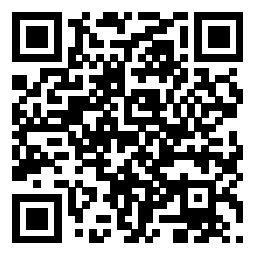Public Health and Safety
Vaccinations and Medical suggestions
After the founding of New China in 1949 the Chinese government put the emphasis of medical work on the rural health services, disease prevention and health care and giving a boast to traditional Chinese medicine. Great efforts were devoted to setting up medical and public health institutions. A nationwide public health network has now been basically formed and an adequate contingent of medical personnel has been established. China’s medical education system is complete, and a large group of medical experts has been trained. By the end of 1999, there were 310,000 public health institutions (including clinics) with 3.16 million beds, of which 2.93 million beds were in hospitals and clinics. There were 4.46 million medical personnel, including 2.05 million doctors and 1.25 million nurses. The public health institutions, hospital and clinic beds and medical personnel increased by 83 percent, 58 percent and 81 percent, respectively, compared with those in 1978.
The technical level of public health has improved greatly, and the management and supervision of medical work have been strengthened. An urban and rural medical insurance system combining state planning and fee paying has been established. Traditional Chinese medicine and Western medicine have been promoted simultaneously. The incidence of many epidemic diseases has dropped considerably, and some endemic diseases are now under control. Rural health work has been improved, greatly contributing to the overall health of the population. The average life expectancy of Chinese people, the death rate of infants and childbirth death rates have almost reached the levels of developed countries.
Travel Health Advice:
Foreign visitors should check at home whether you need vaccinations or not. Generally speaking, you will find few health hazards when traveling in cities of China.
Water is easily available in China, but please don't drink water that comes out of the tap, either in hotels or on the train. Drinkable water is available at restaurants and hotels. Very few cities, like Hong Kong and Guilin, have public direct drinking water system available. Highly suggest you take, when traveling, with you bottled spring water which can be bought anywhere at the station stalls and supermarkets.
In case of accident, most major cities will have a hospital with an accident and emergency ward, however, in more rural districts the nearest hospital may be a distance away so your best bet would be to call an ambulance. Outside of hours try a local hospital or in emergencies, dial 120 for an ambulance which is a free call from any telephone.
Clinics equipped with simple and general medical facilities are available in star-rated hotels, star-rated cruise ships and most of scenic spots in the city. For unexpected injuries or minor ailments, you can get first aid there.
Travel Safety Advice:
The police in China are generally very friendly, though they speak very little English except police in Beijing, Shanghai or Shenzhen who generally can speak simple fluent English. If you are lost do ask for directions as they will usually be happy to help. For better communications, simple notes with common expressions both in Chinese and English are recommended for you to take with.
By and large China is safe, but crime does occur and tourists are particularly vulnerable so precautions and common sense are still advisable, particularly at night.
Here are some pointers:
Try not to carry large amounts of money or obvious symbols of wealth, and keep your wallet or purse out of sight (back pockets are a big no). Pickpockets do tend to operate in crowded areas, for example the public bus, so in busy areas do not carry bags where you can't see them for example on your back.
Make sure that you protect your passport, tickets, visa documents etc by carrying them on your person, preferably underneath clothing in a pouch or money belt. Never leave valuables lying around your hotel room or in your car. And if you are backpacking or staying in hostels buy a padlock so that you can secure your possessions in lockers. Be particularly careful at night. At all times try to stick to busy, well-lit places. Make sure that you take notice of advice from our local guides. If they tell you an area is unsafe, do not go there.
You may well come across beggars in China, particularly in the larger cities. In the vast majority of cases you shouldn't feel threatened or intimidated, but if you do report the incident to the police.
And if you want to hand out money, make sure that you exercise some caution and common sense. For example do not flash around a huge wallet but carry some loose change.
As elsewhere in the world, in China you may come across people who try to exploit the unsuspecting. When on holiday, tourists often let down their guard and that makes them especially vulnerable to scams. So again, caution and common sense is vital. For example, be ware of people on the street side who offer services of money exchange. If you do need exchange money, do it in the Bank of China or at the star-rated hotel.
Fortunately, these unexpected rarely happen to you and most people you meet will be friendly, honest and trustworthy. So just keep your wits about you and you will be fine.










